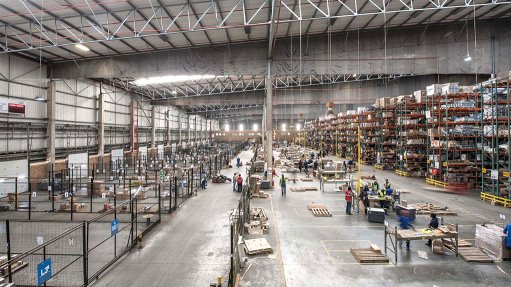
STACKING CHALLENGES Local sector is dealing with an unprecedented array of economic challenges
While logistics real estate continues to do well and the office market is slowly improving, the operating environment for real estate owners and occupiers remains constrained. This is further compounded by the upward interest rate cycle that South Africa faces, says commercial real estate agency Black Pepper Properties director Simon Black.
The sharp increases in global energy costs might also require commercial tenants to take a proactive approach in consumption efficiency.
The decarbonisation transition of real estate will also likely change occupier and investor demands, shift valuation methodologies and fundamentally change the way real estate is developed and run, he adds.
Further, it is estimated that investments of more than $1-trillion a year in clean energy and efficiency will be required to fund the global transition to a low-carbon economy under the intergovernmental organisation United Nations’ Net Zero by 2050 commitment.
However, the recent COP26 net-zero policies are contentious, as they fail to highlight how developed nations overuse their share of the carbon budget.
“Promoting similar net-zero targets for all nations amounts to furthering carbon injustice and inequity. To put this right, it could be argued that developed nations should end their contribution to climate change in the next ten years,” adds Black.
South Africa is dealing with an unprecedented array of economic challenges, he declares.
These challenges include nationwide load-shedding, fuel hikes, unsustainable municipal rates increases, unemployment, limited growth prospects, political battles and the inflationary economic results of the “heavy-handed” global Covid-19 response.
Small, medium-sized and microenterprises can mitigate some of the impact of load-shedding through acquiring new solar kits which are available to them with financing opportunities in the works to make solar installations more affordable. However, Black adds that the real impact of load-shedding is fast becoming untenable, given inflation. Critical operational systems are becoming too expensive to run using backup power sources, which, in turn, makes profitable production of goods extremely challenging.
“Until we have reliability and independence from a power perspective, we’re going to have to navigate stormy waters,” he says.
In terms of real estate subsectors, retail, logistics, hospitality and office spaces are most likely to be able to navigate the impact of load-shedding.
The cost of interruption to occupiers is a major concern, particularly as the affordability of rent, municipal rates and the costs of consumables, such as generator diesel, exacerbate the issue.
While South Africa has many enviable attributes, such as an abundance of natural resources, a sunny climate and unique tourist destinations, these are often outweighed by the serious challenges the country faces, which need to be solved as a matter of urgency, says Black.
Navigating through these challenges is about focusing on what can be controlled and on making small changes, such as businesses installing a power inverter, allowing staff to work flexitime to save on fuel costs or using office space creatively to keep companies and teams as productive as possible.
Popular coworking and serviced office – furnished and fully-equipped pay-as-you-use office spaces – providers continue to offer unprecedented access to exciting new technologies, convenient flexibility and far-reaching economies of scale, he adds.
Further, developers and landlords are increasingly incorporating flexible office components into mixed-use greenfield and existing schemes.
An emerging trend is multiple-floor shopping malls that are converting their quieter, first- and second-floor retail areas into office suites.
Many of these are becoming coworking sites that offer cutting-edge design, conferencing software, fast connectivity, full back-up power and ergonomic workstation applications, which, in turn, enhance productivity while being relatively affordable.
There is a struggle between balancing the benefits of working remotely – such as cost savings and convenience – and working from the office to reinforce company culture and team unity. Pragmatic leadership is required to navigate a positive return to work, adds Black.
“South Africans have proven [to be] extremely resilient and adaptable. In these times, we are being severely tested – keeping level-headed and remaining open for market opportunities is the key for businesses to survive, and perhaps even thrive,” he concludes.